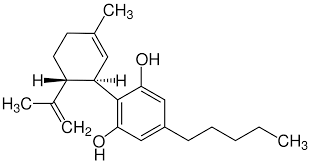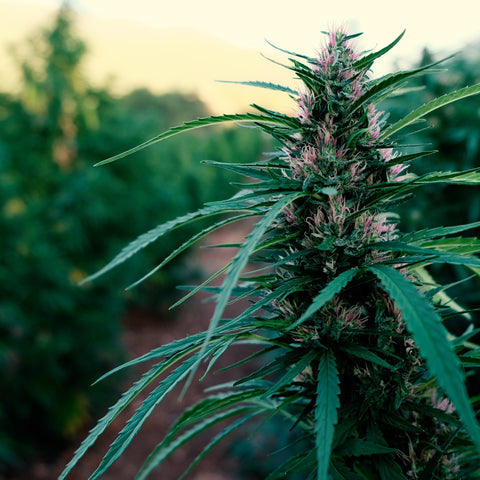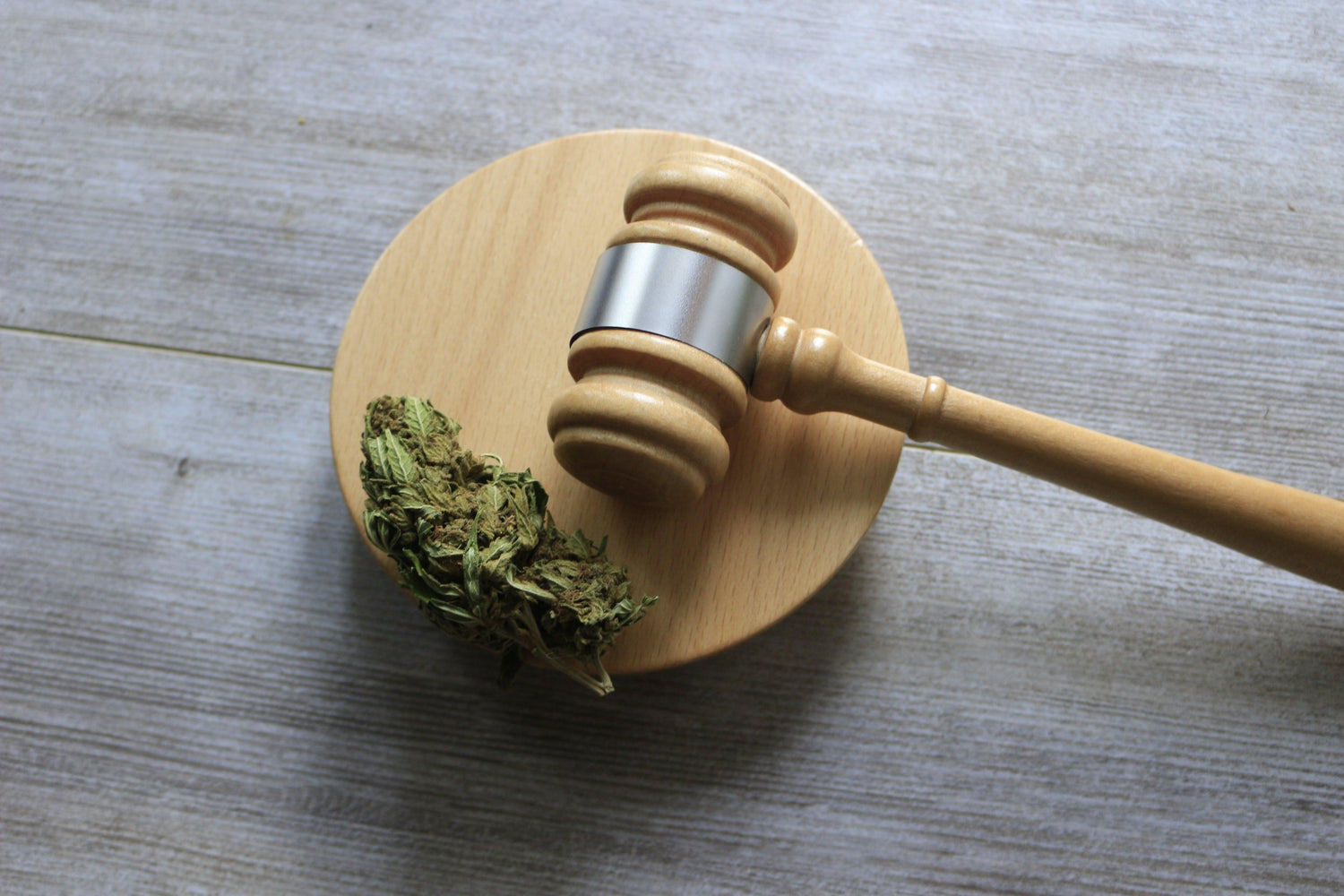Cannabis seems to be the new frontier of the pharmaceutical industry. In the last ten years , dozens of studies have been published on the positive effects of cannabis on the human body.
The beneficial effects of marijuana are many, and valid in the treatment of a wide range of pathologies, more or less serious. The attention of science and the positive results of the majority of studies have led many governments to question the reasons for prohibition, which - slowly - is giving way to varied systems of regulation and legalization .
Summary
- Medical cannabis
- Scientific studies on cannabis
- Cannabis and mood
- Cannabis and PTSD
- Cannabis and metabolism
- Cannabis and memory
Medical cannabis
The positive effects of cannabis are due to the two active ingredients contained in the plant. THC , responsible for the psychoactive effect of marijuana, is used above all for its powerful pain-relieving effect.
CBD , contained in high percentages especially in light cannabis, is known for having many beneficial properties . In particular, CBD appears to have:
Reduces the perception of pain thanks to its action on the human endocannabinoid system;
It has been shown to mitigate the symptoms associated with Post Traumatic Stress Disorder (PTSD) and Obsessive Compulsive Disorder (OCD), caused precisely by a deficiency of anandamide in the human endocannabinoid system.
- Antipsychotic properties
Some scientific evidence suggests that cannabidiol helps treat chizophrenia and other mental health problems , such as bipolar disorder.
CBD oil can easily reduce the feeling of nausea, effectively treating the symptoms of chemotherapy patients. CBD oil is easily digestible, does not contain chemical components and does not have the unpleasant taste of classic antiemetic drugs.
CBD is said to be very effective in therapies to treat some forms of childhood epilepsy, including Dravet Syndrome. Studies are still very limited in terms of case series, but the progress made in this field seems promising.
CBD is known for its calming effects, but it also has energizing properties: thanks to its ability to strengthen the cells of the human body , it contributes to their correct regeneration. It is also an excellent antioxidant, according to a 2008 study, even better than vitamins C and E.
Scientific studies on cannabis
Cannabis is a plant that has always aroused much curiosity within the scientific community. The first in-depth study on the effects of marijuana was the famous La Guardia Report , promoted in 1938 by New York mayor Fiorello La Guardia.
The mayor of the Big Apple appointed a commission of inquiry made up of doctors, professors and researchers to understand how cannabis consumption changed human behavior .
After more than five years, in 1944, La Guardia harshly contested the campaign of repression that Harry Anslinger , inspector of the Bureau of Prohibition, was leading against hemp.
Harry Anslinger was a government official, close to the Democratic Party, who was pushing the US government to obtain an official prohibition on cannabis or at least heavy taxation to discourage its trade, using extensive propaganda operations. Anslinger was particularly concerned with the negative effects that cannabis has on health, ignoring its pharmaceutical potential, which is now re-evaluated.
The most sensational result of this study was that smoking cannabis "does not lead to addiction, in the medical sense of the term" , therefore that marijuana is not a hard drug, in complete contrast to the harsh campaign led by Harry Anslinger.
After more than five years of research, the members of the study committee compiled a catalog of 13 salient points with the conclusions they had reached. In short, according to the study, the practice of smoking marijuana does not lead to a form of pathological addiction and does not lead to addiction to morphine or heroin or cocaine. The La Guardia Report therefore denied the so-called " switch theory" , according to which the use of soft drugs such as those derived from Cannabis would physiologically lead to the use of hard drugs.
Cannabis and mood
CBD is an excellent weapon against anxiety and stress. In 2016, researchers from the National Institutes of Health - University of Utah, in collaboration with the University of California, conducted a study on a group of rodents, administering a substance chemically similar to CBD .
When researchers blocked serotonin receptors in mice, they found that the effects of CBD were no longer evident. This result suggests that there is indeed a relationship between cannabinoids and the serotonin system .
By comparing the anxiety levels of 50 individuals who regularly smoked cannabis and 50 who did not smoke at all, it was found that patients who smoked marijuana experienced much lower levels of anxiety than those who did not.
Although the dosage and mechanism of consumption require more research, the study concluded that CBD is an effective treatment for this psychological condition .
For more than forty years, scientists have linked the effect of the high (the high from marijuana use) to the interaction between THC and dopamine . Here's how the National Institute on Drug Abuse (NIDA) explains the high :
“THC, acting through cannabinoid receptors, also activates the brain's reward system, which includes regions that govern the response to healthy pleasurable behaviors such as sex and eating. Like most other substances of abuse, THC stimulates neurons in the reward system to release the signaling chemical dopamine at higher levels than typically observed in response to natural stimuli. This flood of dopamine contributes to the pleasure high that marijuana users seek.”
Today things have changed a bit. Studies in animal models supported the aforementioned theory, while numerous human studies suggest that at best, cannabis consumption produces only a modest amount of dopamine , as opposed to other stimulant substances such as cocaine and amphetamines.
In 2015, researchers at King's College London conducted a systematic review of all published studies – 25, to be exact – and said that in humans there is “no direct evidence to suggest that cannabis use affects Acute striatal dopamine release or influences chronic state of dopamine receptors in healthy volunteers” .
Cannabis and PTSD
Commonly identified with the acronym PTSD, post traumatic stress disorder is the disorder which in psychiatry refers to a series of symptoms caused by a shock. Often the key to managing PTSD is memory : those who have suffered a traumatic event often relive it through memories, images, perceptions and flashbacks.
A lower level of anandamide, an endocannabinoid linked to the management and production of dopamine, has been found in subjects suffering from PTSD.
One of the central aspects of PTSD is therefore the deficient component of endocannabinoids : scientists have established that the signal from the CB-1 receptors, under normal conditions, deactivates traumatic memories and allows us to forget. Altered CB-1 receptor signaling, caused by endocannabinoid deficiency, is related to the consolidation of adverse memories, decreased fear extinction and anxiety.
THC appears to be a huge help in increasing anandamide levels in the body . However, it is believed that it is preferable to combine it with CBD which regulates its side effects, especially those linked to anxiety and paranoia.
Cannabis and metabolism
Professor Murray Mittleman, member of the cardiovascular epidemiological research unit of the Beth Israel Deaconess Medical Center in Boston, undertook a study to analyze the relationship between cannabis intake and the values of insulin, glycaemia, blood pressure, cholesterol, body mass and abdominal circumference .
The study involved approximately 5 thousand patients between 20 and 59 years old, with the support of the National Health and Nutrition Examination Survey .
The result of the study is surprising: the sample of patients who regularly used cannabis had an insulin level 16% lower than those who did not take it , as well as higher levels of good cholesterol.
Similar results, with less evidence, were found for those who had used cannabis, but stopped taking it before the survey.
All indicators of metabolic or vascular pathologies considered in the research were lower in current or former cannabis users . Researchers are convinced that there is a direct relationship between the use of cannabis and reduction of the risks of obesity and diabetes: cannabinoids, in fact, act on CB1 receptors, exerting an energy balancing action in metabolic processes, inducing the body to burn more calories.
Cannabis and memory
One of the most obvious effects of cannabis is the influence it has on short-term memory.
When you are under the influence of cannabis it becomes more difficult to create new memories, but also to retain important information such as information about the space around you.
Short-term memory also allows us to provide immediate responses based on the context : when using marijuana this faculty is partially or completely lost and it becomes difficult to interact, especially in an unfamiliar environment.
Another variation of short-term memory is the so-called working memory , i.e. the ability to respond to stimuli and provide immediate information to external stimuli.
A 2004 study by researchers at the San Francisco Brain Research Institute and SAM Technology tested the working memory of 10 adults immediately after cannabis use.
After consuming cannabis, participants were subjected to a spatial “N-back” test , which required them to examine a series of symbols and images, and identify those that had been shown to them just moments before. The responses of those who had consumed cannabis were recorded as much slower and more inaccurate than those of those who had received a placebo.
The effects of cannabis on our long-term memory, unfortunately, are much more concerning.
A 2006 study, published in the JAMA Internal Medicine Journal, found a strong correlation between long-term exposure to marijuana and verbal memory impairment in middle-aged people (between 18 and 30 years old).
The study included a sample of more than 5,000 participants and found that long-term marijuana use had a significant impact on verbal memory. On average, for every 5 years of cannabis use, 50% of participants forgot 1 word out of a list of 15 presented to them as part of the test .










